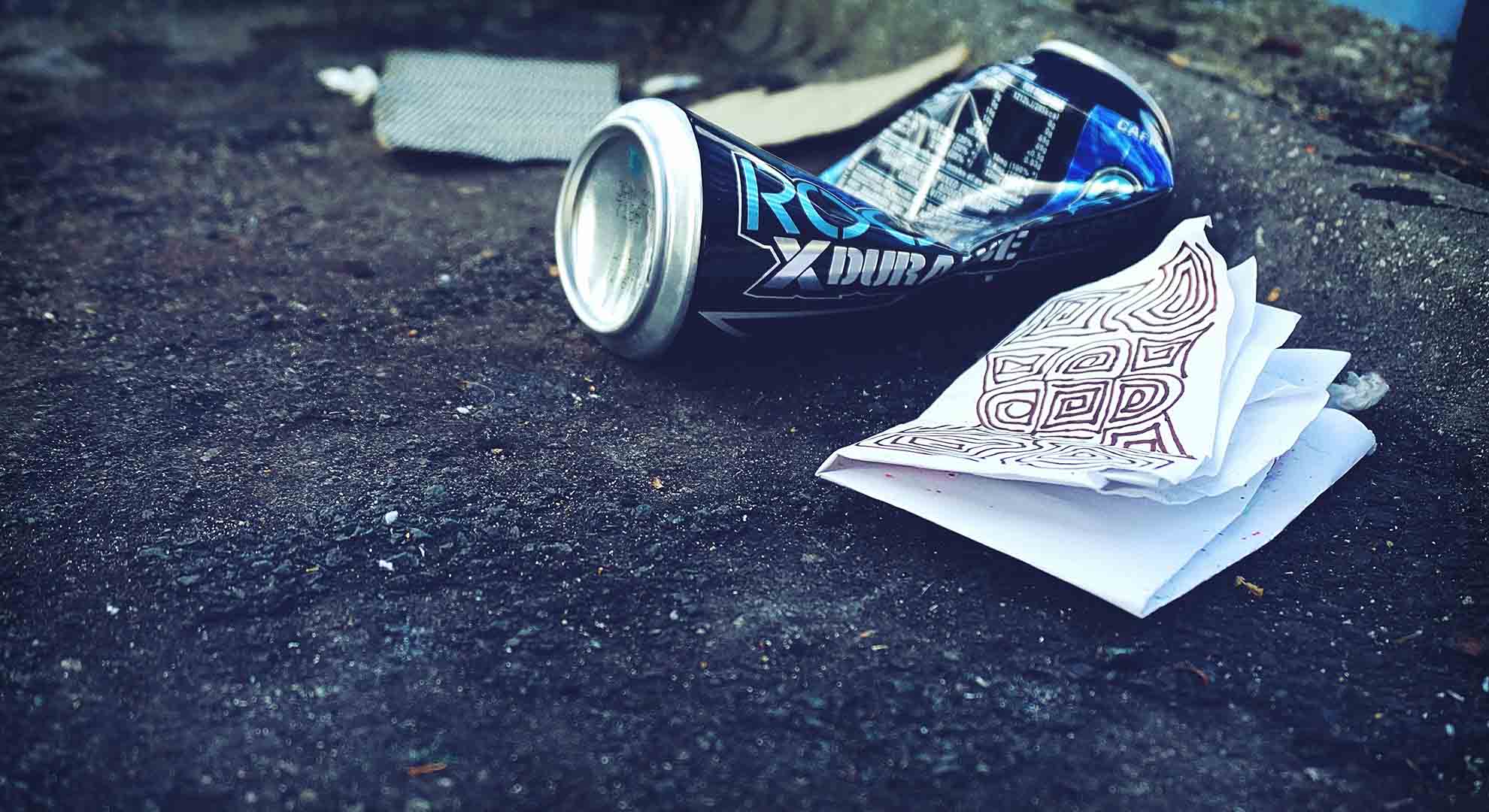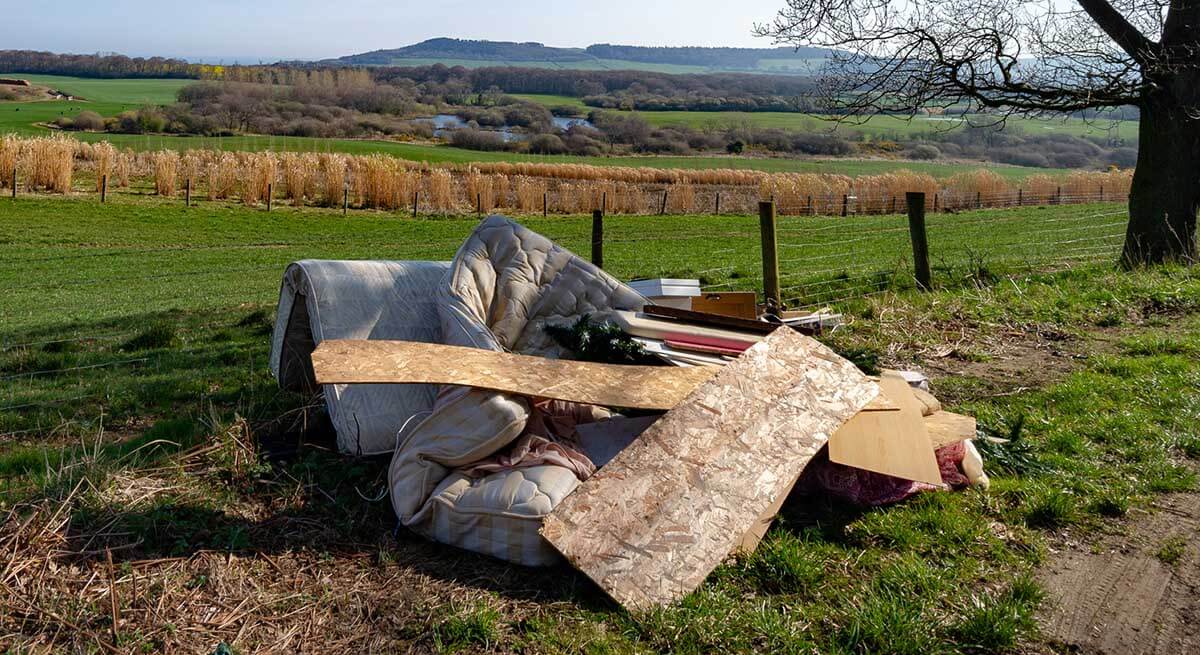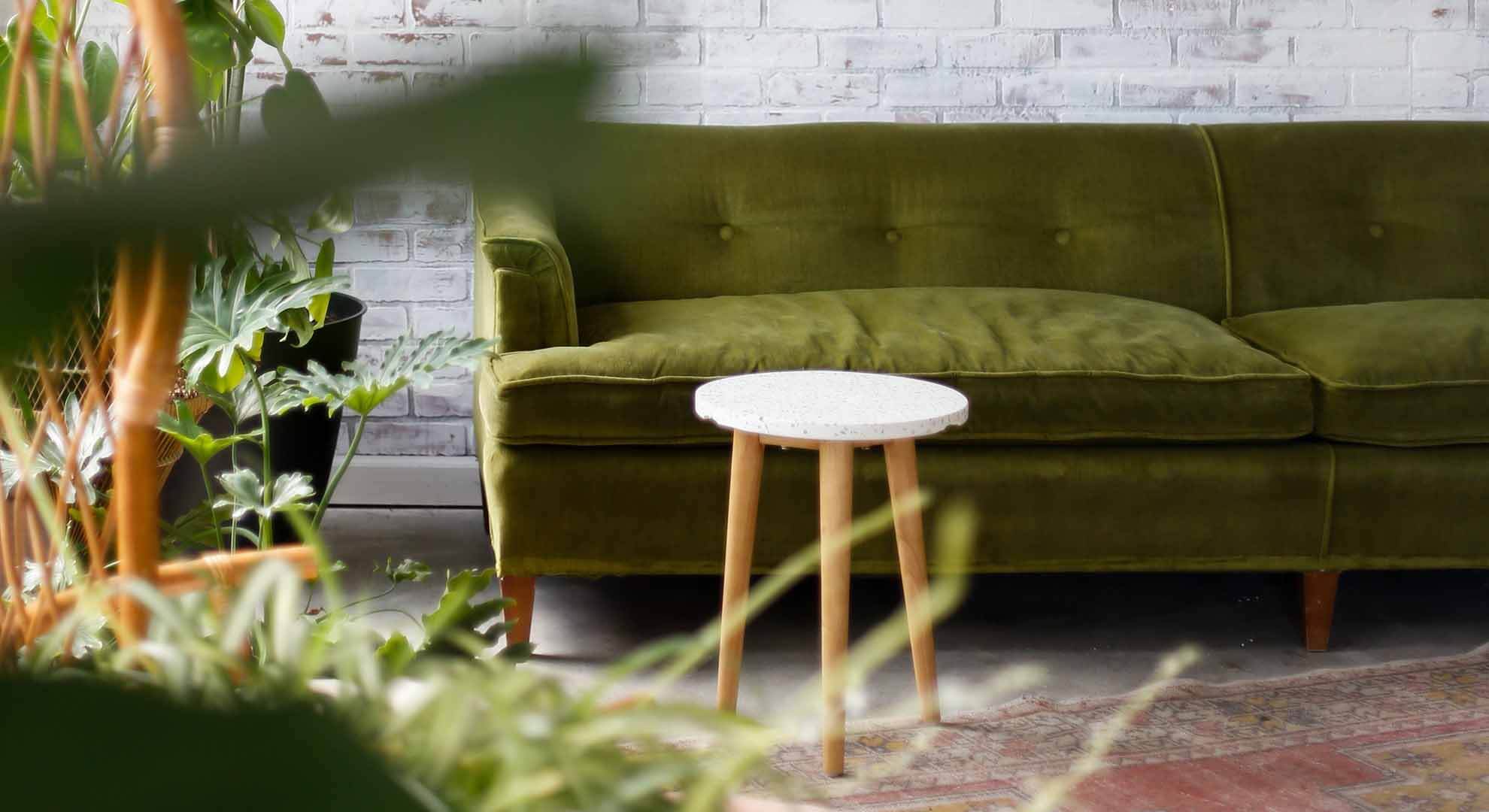
What can you do to prevent litter and flytipping?
Pretty isn’t a word you’d normally associate with litter. But, when taxpayers in Scotland are footing the bill for £53 million every year to clear up litter & flytipping, it can certainly cost you a pretty penny.
That’s before we even begin to think about the environmental impact material pollution has on our environment (priceless in case you were wondering).
We all have a responsibility to help stop litter & flytipping. Here’s how you can play your part to help protect our environment and reduce public spending on such an avoidable problem.
Did you know that 80% of the litter found in our seas and oceans originated on land? #HowToWasteLess
Share on
Avoiding litter on-the-go
It might sound like the elephant in the room but the best way to stop rubbish becoming litter or flytipping is to avoid creating it in the first place.
If you’re heading out, grab your reusable water bottle and download one of the many apps that show you where you can get free refills. Bring your own coffee cup too as most cafes will happily accept a reusable cup these days. And, they’ll often top up your water bottle while you’re at it.
Buying food or drink on-the-go? Keep hold of the wrapper until you can get to a bin. Or better still, kick back and relax by sitting in. Not only will you feel more rested, but you won’t have the panic of wondering which bin you should throw your empty sandwich box in.
Lots of towns and cities now have on-the-go recycling facilities for bottles and cans (sometimes paper and card too). Otherwise, there will be general waste bins nearby.
In the countryside, where bins might be a bit more thin on the ground, think ahead about what you’re bringing with you and keep it in your pocket or bag until you get to a bin.
Think cigarette butts aren’t really litter? Think again. Cigarette butts are a particularly damaging form of litter and every day UK smokers throw away around 200 million of them. They’re not biodegradable and they contaminate the environment with lots of nasty toxins.
At home
Litter isn’t just confined to chucking crisp packets out into the street. Litter can also be caused by overspill from household rubbish and recycling bins in bad weather conditions.
We can reduce this by keeping bins secured to stop rubbish escaping and in extreme weather, it's best to avoid putting them out for collection altogether or you might find yourself running down the street after your wheelie bin.
Taxpayers in Scotland are footing the bill for £53 million every year to clear up litter & flytipping. #HowToWasteLess
Share on
Larger litter
Flytipping is the illegal dumping of rubbish in places where it shouldn't be. Householders have a responsibility to make sure unwanted items are disposed of correctly by...
- Passing on large items like furniture and electricals that are still in good condition. You can arrange an uplift by visiting the Reuse Tool.
- Requesting a bulky or special uplift from your local council.
- Using your nearest Household Waste and Recycling Centre or Recycling Point - contact your local council to find out more.

If you hire a company to get rid of your rubbish - including garden cuttings or waste from building work - it’s your responsibility to ensure they are legitimate and operating within the law. You can do this by...
- Asking to see a copy of their registered waste carrier certificate.
- Getting a receipt confirming what they have taken, where they are disposing of it and details of the payment made.
- If your waste is found to be flytipped, you may be liable for any legal proceedings if you don’t have this information.
- Remember, if the cost of the service seems too good to be true, it probably is!
And finally, if you see litter or flytipping, contact your local authority: if they don’t know about it, they can’t clear it up.
What can you do?
Heading out? Grab your reusable water bottle, bag for life and coffee cup to reduce the chance of having to get rid of rubbish.
Secure wheelie bins to stop rubbish from making a break for it during bad weather.
Pass on large items (like furniture), request a bulky uplift from your council or take to your local household recycling centre.
Check that any contractors working on your home have a registered waste carrier certificate.

